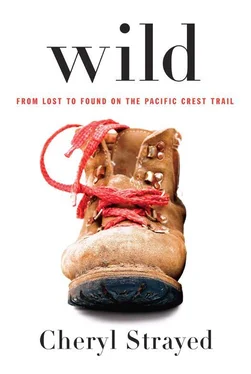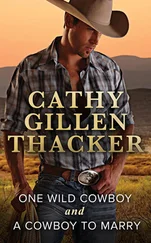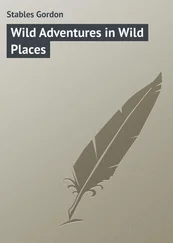Cheryl Strayed - Wild
Здесь есть возможность читать онлайн «Cheryl Strayed - Wild» весь текст электронной книги совершенно бесплатно (целиком полную версию без сокращений). В некоторых случаях можно слушать аудио, скачать через торрент в формате fb2 и присутствует краткое содержание. Год выпуска: 2012, ISBN: 2012, Жанр: Современная проза, на английском языке. Описание произведения, (предисловие) а так же отзывы посетителей доступны на портале библиотеки ЛибКат.
- Название:Wild
- Автор:
- Жанр:
- Год:2012
- ISBN:978-0-307-95765-8
- Рейтинг книги:4 / 5. Голосов: 1
-
Избранное:Добавить в избранное
- Отзывы:
-
Ваша оценка:
- 80
- 1
- 2
- 3
- 4
- 5
Wild: краткое содержание, описание и аннотация
Предлагаем к чтению аннотацию, описание, краткое содержание или предисловие (зависит от того, что написал сам автор книги «Wild»). Если вы не нашли необходимую информацию о книге — напишите в комментариях, мы постараемся отыскать её.
Wild — читать онлайн бесплатно полную книгу (весь текст) целиком
Ниже представлен текст книги, разбитый по страницам. Система сохранения места последней прочитанной страницы, позволяет с удобством читать онлайн бесплатно книгу «Wild», без необходимости каждый раз заново искать на чём Вы остановились. Поставьте закладку, и сможете в любой момент перейти на страницу, на которой закончили чтение.
Интервал:
Закладка:
But mostly I didn’t look up. Step by step, my eyes were on the sandy and pebbly trail, my feet sometimes slipping beneath me as I climbed up and switched back. My pack squeaked annoyingly with each step, the sound still emanating from that spot only a few inches from my ear.
As I hiked, I tried to force myself not to think about the things that hurt — my shoulders and upper back, my feet and hips — but I succeeded for only short bursts of time. As I traversed the eastern flank of Mount Jenkins, I paused several times to take in vast views of the desert that spread east below me to the vanishing point. By afternoon I had come to a rockslide and stopped. I looked up the mountain and followed the slide with my eyes all the way down. There was a great river of angular fist-sized metamorphic rocks — in place of the once-flat two-foot-wide trail that any human could walk through. And I wasn’t even a normal human. I was a human with a god-awful load on my back and without even a trekking pole to balance myself. Why I had neglected to bring a trekking pole, while not failing to bring a foldable saw, I did not know. Finding a stick was impossible — the sparse low and scraggly trees around me were of no use. There was nothing to do but to push on.
My legs trembled as I stepped onto the rockslide in a half squat, fearful that my usual hunching in a remotely upright position would upset the rocks and cause them to slide en masse farther down the mountain, carrying me with them. I fell once, landing hard on my knee, and then I rose to pick my way even more tediously across, the water in the giant dromedary bag on my back sloshing with each step. When I reached the other side of the slide, I was so relieved it didn’t matter that my knee was pulsing in pain and bleeding. That’s behind me , I thought with gratitude, but I was mistaken.
I had to cross three more rockslides that afternoon.
I camped that night on a high saddle between Mount Jenkins and Mount Owens, my body traumatized by what it had taken to get there, though I’d covered only 8.5 miles. I had silently lambasted myself for not hiking more quickly, but now, as I sat in my camp chair catatonically spooning my dinner into my mouth from the hot pot that sat in the dirt between my feet, I was only thankful that I’d made it this far. I was at an elevation of 7,000 feet, the sky everywhere around me. To the west I could see the sun fading over the undulating land in a display of ten shades of orange and pink; to the east the seemingly endless desert valley stretched out of sight.
The Sierra Nevada is a single uptilted block of the earth’s crust. Its western slope comprises 90 percent of the range, the peaks gradually descending to the fertile valleys that eventually give way to the California coast — which parallels the PCT roughly two hundred miles to the west for most of the way. The eastern slope of the Sierra Nevada is entirely different: a sharp escarpment that drops abruptly down to a great flat plain of desert that runs all the way to the Great Basin in Nevada. I’d seen the Sierra Nevada only once before, when I’d come west with Paul a few months after we left New York. We’d camped in Death Valley and the next day drove for hours across a landscape so desolate it seemed not of this earth. By midday the Sierra Nevada appeared on the western horizon, a great white impenetrable wall rising from the land. It was nearly impossible for me to conjure that image now as I sat on the high mountain saddle. I wasn’t standing back from that wall anymore. I was on its spine. I stared out over the land in a demolished rapture, too tired to even rise and walk to my tent, watching the sky darken. Above me, the moon rose bright, and below me, far in the distance, the lights in the towns of Inyokern and Ridgecrest twinkled on. The silence was tremendous. The absence felt like a weight. This is what I came for, I thought. This is what I got.
When at last I stood and readied my camp for bed, I realized that for the first time on the trail, I hadn’t put on my fleece anorak as the sun went down. I hadn’t even put on a long-sleeved shirt. There wasn’t the slightest chill in the air, even 7,000 feet up. That night I was grateful for the soft warm air on my bare arms, but by ten the next morning my gratitude was gone.
It was seared off of me by the relentless, magnificent heat.
By noon the heat was so merciless and the trail so exposed to the sun I wondered honestly if I would survive. It was so hot the only way I could keep going was by stopping every ten minutes to rest for five, when I would chug water from my bottle that was hot as tea. As I hiked, I moaned again and again, as if that would provide some cooling relief, but nothing changed. The sun still stared ruthlessly down on me, not caring one iota whether I lived or died. The parched scrub and scraggly trees still stood indifferently resolute, as they always had and always would.
I was a pebble. I was a leaf. I was the jagged branch of a tree. I was nothing to them and they were everything to me.
I rested in what shade I could find, fantasizing in intricate detail about cold water. The heat was so intense that my memory of it is not so much a sensation as a sound, a whine that rose to a dissonant keen with my head at its very center. Despite the things I’d endured so far on the trail, I’d never once considered quitting. But now, only ten days out, I was done. I wanted off.
I staggered north toward Kennedy Meadows, furious with myself for having come up with this inane idea. Elsewhere, people were having barbecues and days of ease, lounging by lakes and taking naps. They had access to ice cubes and lemonade and rooms whose temperature was 70 degrees. I knew those people. I loved those people. I hated them too, for how far away they were from me, near death on a trail few had ever even heard of. I was going to quit. Quit, quit, quit , I chanted to myself as I moaned and hiked and rested (ten, five, ten, five). I was going to get to Kennedy Meadows, retrieve my resupply box, eat every candy bar I’d packed into it, and then hitch a ride to whatever town the driver who picked me up was going to. I would get myself to a bus station and from there go anywhere.
Alaska, I decided instantly. Because in Alaska there was most definitely ice.
As the notion of quitting settled in, I came up with another reason to bolster my belief that this whole PCT hike had been an outlandishly stupid idea. I’d set out to hike the trail so that I could reflect upon my life, to think about everything that had broken me and make myself whole again. But the truth was, at least so far, I was consumed only with my most immediate and physical suffering. Since I’d begun hiking, the struggles of my life had only fluttered occasionally through my mind. Why, oh why, had my good mother died and how is it I could live and flourish without her? How could my family, once so close and strong, have fallen apart so swiftly and soundly in the wake of her death? What had I done when I’d squandered my marriage with Paul — the solid, sweet husband who’d loved me so steadfastly? Why had I gotten myself in a sad tangle with heroin and Joe and sex with men I hardly knew?
These were the questions I’d held like stones all through the winter and spring, as I prepared to hike the Pacific Crest Trail. The ones I’d wept over and wailed over, excavated in excruciating detail in my journal. I’d planned to put them all to rest while hiking the PCT. I’d imagined endless meditations upon sunsets or while staring out across pristine mountain lakes. I’d thought I’d weep tears of cathartic sorrow and restorative joy each day of my journey. Instead, I only moaned, and not because my heart ached. It was because my feet did and my back did and so did the still-open wounds all around my hips. And also, during that second week on the trail — when spring was on the very cusp of turning officially to summer — because I was so hot I thought my head would explode.
Читать дальшеИнтервал:
Закладка:
Похожие книги на «Wild»
Представляем Вашему вниманию похожие книги на «Wild» списком для выбора. Мы отобрали схожую по названию и смыслу литературу в надежде предоставить читателям больше вариантов отыскать новые, интересные, ещё непрочитанные произведения.
Обсуждение, отзывы о книге «Wild» и просто собственные мнения читателей. Оставьте ваши комментарии, напишите, что Вы думаете о произведении, его смысле или главных героях. Укажите что конкретно понравилось, а что нет, и почему Вы так считаете.












